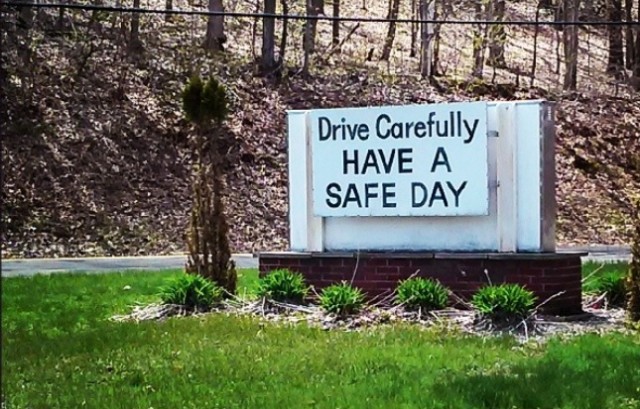Fear-Based Spending
by Joshua Michtom

Let me start by saying that safety is good, and it is sensible to spend money on it. The auto industry howled miserably about the terrible increase in manufacturing costs that would accompany mandatory seatbelts, but it was probably worth it, because seatbelts save a lot of lives. But the line between prudent precaution and baseless fear can be hard to see, and can lead us to expend effort and money on the prevention of remote risks.
There’s nothing inherently wrong with an abundance of caution (except, you know, when there is), but it’s interesting to consider the sensible and not-so-sensible ways we spend money. I doubt anyone ever went broke buying a Brita water filter in New York City, but it is basically a waste of $25 in a city with some of the finest tap water in the country. And why spend an extra $100 to have a baby video monitor rather than an audio model? Have you ever watched a baby sleep? It is boring. (Besides, the audio version is perfectly adequate for sitting on your across-the-street neighbor’s stoop and having a margarita after your infant is in bed. Or so I’ve heard.)
And yet, we spend this money. Maybe this is OK, because it makes us feel better and sleep easier, even if we know the risks we’re protecting against are too remote to worry about. I’m not above conceding that it might be easier to buy peace of mind than to overcome irrational fears. After all, hand sanitizer is cheap and ebola is awful. But where is the line? Would you spend $3.49 a pop for a device that keeps your kid from getting his fingers pinched in a door, or just let your kid learn a valuable lesson for free? What about $14.95 for one of those hammer-knife car safety things that helps you cut your seatbelt, smash your window, and drag yourself from your overturned car before a huge fan of your mystery novels arrives to hold you hostage in a remote cabin? Do you pay extra when buying electronics for the extended warranty? What products or services do you, dear readers, spend money on even though you know deep down it’s a waste? How does fear affect your choices as a consumer?
(By the way, the ever-reliable SkyMall catalog is a treasure trove of weird safety items that are probably a waste of money. For example, a special backpack for escaping from a burning high-rise, $499–849; a set of lights to simulate the flicker of a television so people think you’re home, $40; and disposable “germ barriers,” “perfect for airplane head rests and great for hotel/public restroom countertops,” $12.99 for seven.)
Photo by the author.
Support The Billfold
The Billfold continues to exist thanks to support from our readers. Help us continue to do our work by making a monthly pledge on Patreon or a one-time-only contribution through PayPal.
Comments